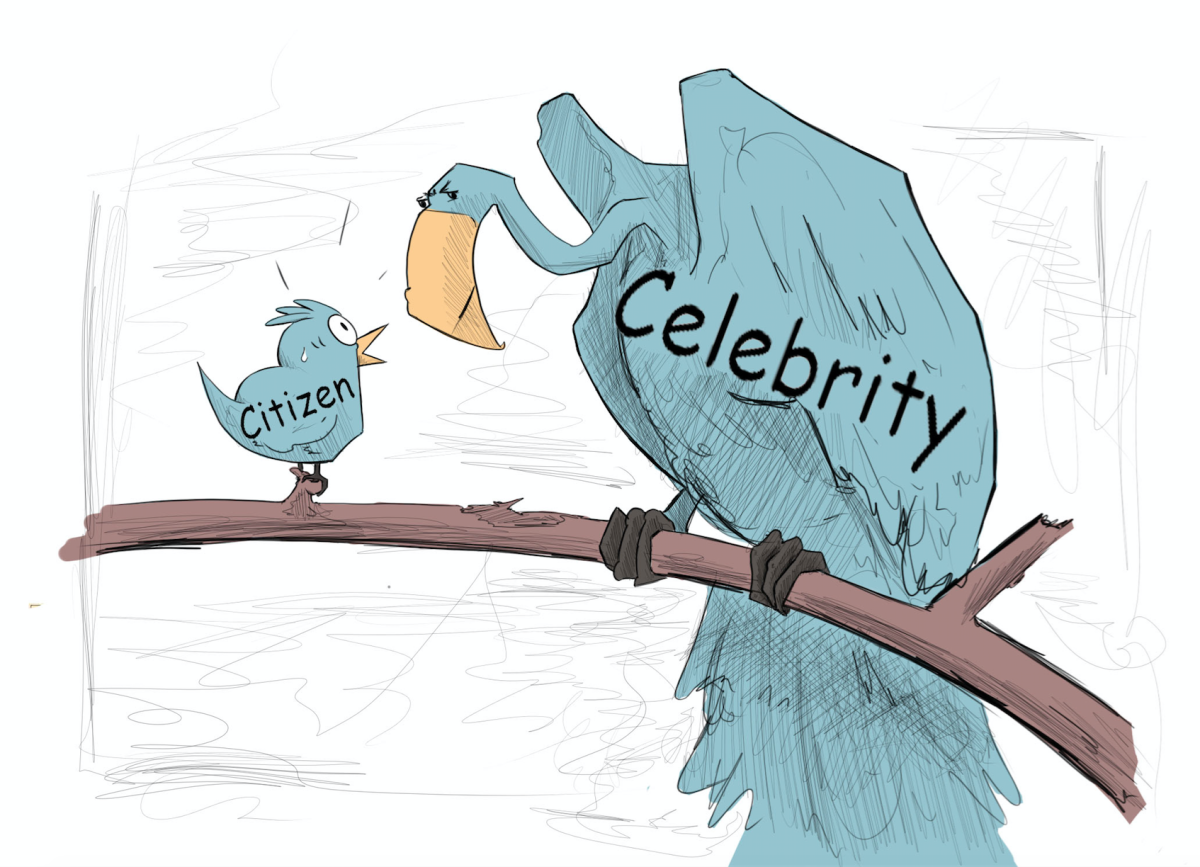Editor’s note: This article is a part of a head-to-head. Read the other article here.
Opinions are everywhere. Everyone has them, and everyone has the right to voice them. Just like all people are created equal, all opinions must be equal.
While we hold this idea true under the law, the opinions of some seem to carry more weight than the opinions of others. We can see this exception come into play best with celebrities.
Celebrities are considered special enough to be known by everyone. We have a resulting tendency to put a dangerous amount of faith in what they say.
As much as celebrities have the right to state their opinions, they shouldn’t carry more authority than anyone else. Being an actor doesn’t make one better educated, and being a singer doesn’t imply wisdom.
Celebrities are incredibly wealthy and live lives far different from the common man’s. In this way, celebrities are likely more out of touch than most folk. They have equal right to say what they want, but what they say doesn’t necessarily represent reality for the everyday citizen.
Many economic and social policies don’t affect celebrities because of their wealth and status. It’s easier for a celebrity to advocate an irresponsible but compassionate economic plan when they don’t have to worry about finances day-to-day.
The problem comes in the form of the influence celebrities have. People often look to their pop idols because they see successful people who must have worthwhile opinions. Nowhere is this phenomenon more prevalent than with young people.
Young people are foolish. Unfortunately, we’re not born with wisdom, and it’s easier when we’re young to look at what our favorite singers are saying rather than what our congressmen and political pundits are saying.
Of course, kids eventually grow up and begin to find more reliable sources for their news. However, with today’s reliance on social media, finding news is harder than ever.
Ironically, the new age of information came with an epidemic of media illiteracy. The “fake news” craze points out constant contradictions from source to source. Furthermore, reactions to articles from news sites often indicate the reader didn’t read the article.
We all have biases and preconceived notions, and it’s too easy to push those ideas onto an article with nothing more than the title to go on. In the same vein, it’s easier to read a short tweet than it is to read an entire article.
Tweets lack depth, but the real tragedy comes in the form of representation. Celebrities have large followings. Singer Taylor Swift, who has recently broken her political silence, has upward of 112 million followers on Instagram and 945,000 Twitter followers. Rapper Kanye West, the infamous Trump-supporting celebrity, boasts 12.6 million Twitter followers
There is a brobdingnagian amount of people listening to what they say. Even if people follow their social media accounts for the content they create, they end up exposed to their political thoughts all the same.
This phenomenon isn’t all bad, however. In the 24 hours following Swift’s Instagram post, vote.org reported 65,000 people aged 18 to 29 registered to vote. Former First Lady Michelle Obama uses her popularity and platform to encourage young people to exercise their voting rights.
The power of celebrities isn’t inherently bad, but it is dangerous if abused. Celebrities should make sure to keep in mind how influential they are when they post opinions. Likewise, we ought to work to consume media more prudently, lest we sully the good name of information.





